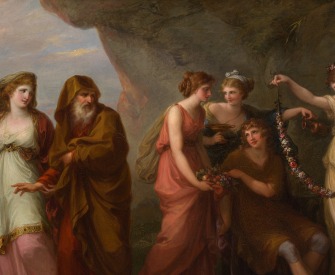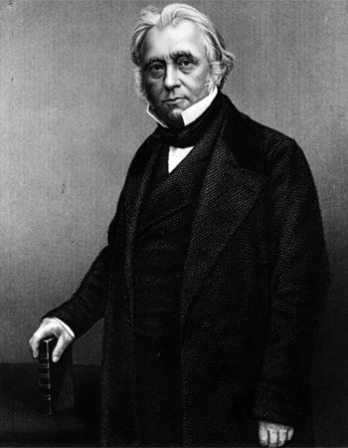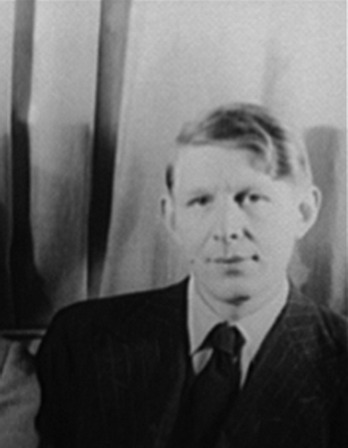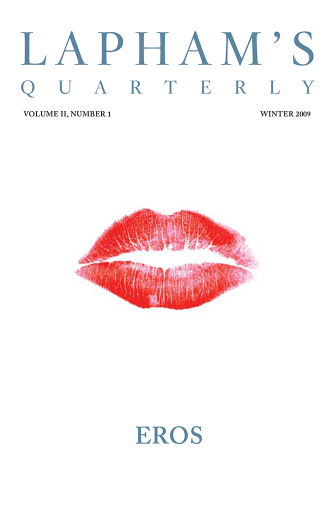Fame
Fame I am called, marvel you nothing,
Though with tongues am compassed all round,
For in voice of people is my chief living,
O cruel Death, thy power I confound.
When thou a noble man hast brought to ground,
Maugre thy teeth, to live cause him shall I
Of people in perpetual memory.
Time
I whom thou sees with horologe in hand,
Am named Time, the lord of every hour,
I shall in space destroy both sea and land.
O simple Fame, how darest thou man honor,
Promising of his name an endless flower;
Who may in the world have a name eternal
When I shall in process destroy the world and all.
Eternity
He needeth not to boast, I am Eternity,
The very name signifieth well,
And mine empire infinite shall be.
Thou, mortal Time, every man can tell,
Art nothing else but the mobility
Of sun and moon, changing in every degree;
When they shall leave their course, thou shalt be brought,
For all thy pride and boasting, into naught.
From “Nine Pageants.” These three stanzas are the last in a series of nine—among More’s earliest extant writings—that as a whole describe all the ages of man. By 1515 More was employed in royal service and went to Belgium to broker a commercial treaty; while there he conceived of his best-known work, Utopia, and it was published to much acclaim one year later. He served as lord chancellor from 1529 to 1532, resigning his position when he refused to recognize King Henry VIII as the head of the Church of England. More was beheaded three years later.
Back to Issue





